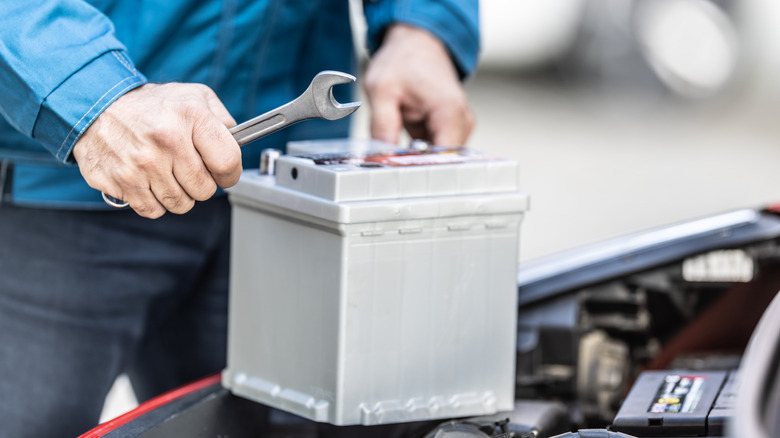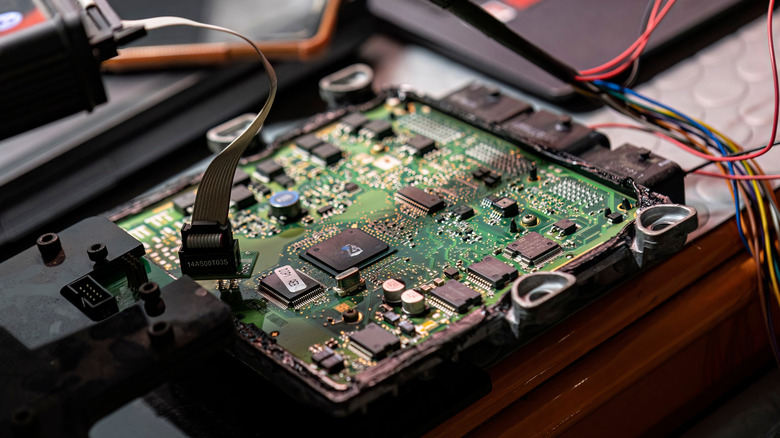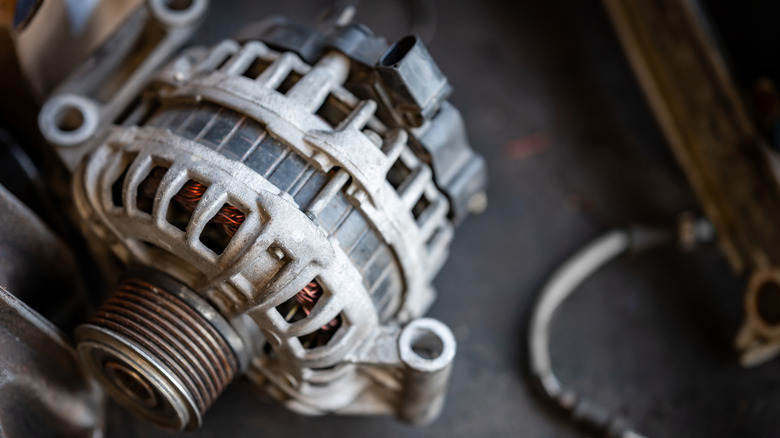Why Your MPG May Drop After A Battery Change (And Whether It Should Worry You)
There are many things which can lower your mpg when driving, such as tire pressure, engine health, and carrying excess weight — but is it possible that battery health, and more specifically, installing a new battery, could also be costing you at the pump? The truth is that yes, a new battery can cause your car's fuel efficiency to dip, and throughout this article we will cover how long this dip lasts for, what you can do about it, and whether it should worry you or not.
The main reason why your mpg might drop after a battery change is because your car's Engine Control Unit (ECU) learns your driving style, and changing the battery will result in the ECU needing to relearn this information. So, when the old battery is removed, and a new one installed, the ECU resets back to factory settings. Among other things, this means that the ECU forgets your driving habits and style, and so resorts back to a less efficient base until it once again learns how you drive.
The ECU's relearning process will occur automatically after the fitting of a new battery
Delving more into detail, what the ECU will reset and therefore need to relearn is information such as ignition timing and idle speed. Throwing these back to factory defaults is what hampers your mpg, although fortunately, it shouldn't take too long for your car to be back up to speed after a battery change.
The amount of time required for an ECU to learn your driving habits depends on two main variables, namely how you drive, and the manufacturer's predetermined requirements. For instance, if the ECU requires you to complete a full cold-to-hot driving cycle three times in order to relearn, and you mainly undertake short trips which don't allow the car to get up to temperature fully, then technically you're prolonging the car's relearning process, hampering your fuel economy further. Each car and ECU is different, so some models will learn quicker, whereas others will have more demanding requirements when it comes to completing the relearning process.
It's important to remember that this process happens naturally, and so there is no need to behave any different when back behind the wheel after a battery change. Drive as you usually would, and before long, the ECU should relearn your driving habits, and typical fuel consumption figures will start appearing once again.
How else can battery health affect fuel economy, and should you be worried?
There is evidence that a weak battery may also cause your fuel economy to dip because the alternator saps more power in order to charge a weakened battery. In real terms, this could equate to losing around 2 MPG in a typical commuter car. In turn, this could mean that, if the previous battery was in a very poor state and causing the alternator to work on overtime, a switch to a new and healthy battery might actually cause your mpg to improve. This, however, does not bypass the ECU's relearning mode, which will take its toll regardless of battery health.
The important thing to remember is that this is no cause for real concern. Every car is different, as is every battery, and ECU. Some ECUs will need fewer hot-to-cold cycles to relearn driving habits, whereas others will require more driving before the default settings are removed. If you are concerned about your new battery affecting your mpg, it might be worth consulting your car's manual or contacting the manufacturer directly, and asking them to confirm the driving cycles your specific car and ECU requires before it relearns your driving style.


